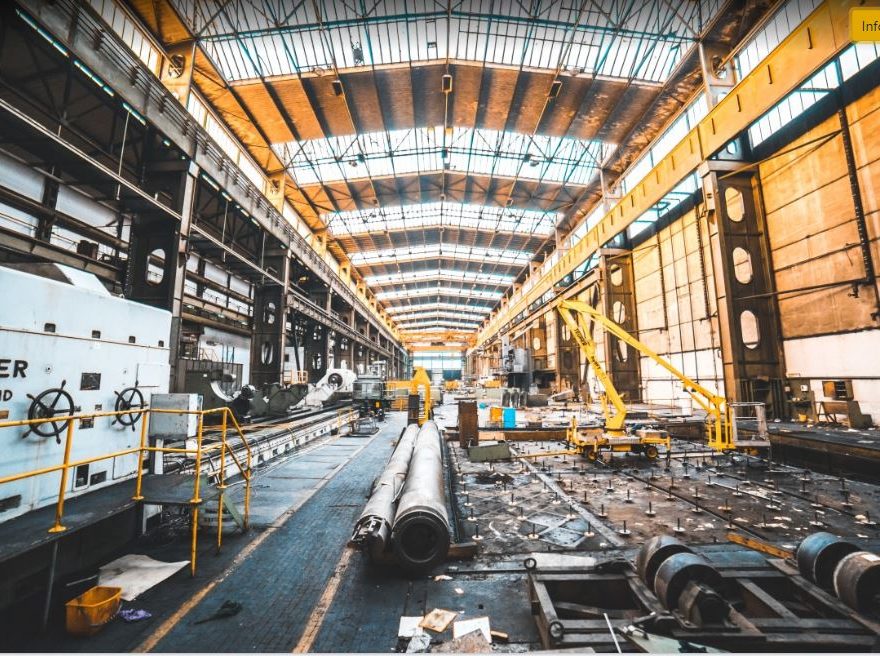We will start with a series of data that will give us an idea of the economic problem we are facing
The economy fell down 3.8% in the Eurozone in the first quarter, with 5.8% in France, 5.2% in Spain and 2.2% in Germany. The forecast of the Governor of the Bank of Spain is that the Spanish economy will fall in 2020 between 9.5% and 12.4%, while in Germany it will be 3%. In industry, the decrease was 11.6%, in the automotive sector more than 30%, orders from the manufacturing sector were 15.6% lower than in March, and exports fell by 7.7%.
We are going to define the field of action. We define industry as the activity that has the purpose of transforming raw materials into finished or semi-finished products, using an energy source and in many occasions through the contribution of labour.
To start with a series of recent news that give way to analysis, we will mention these three:
-
In recent days, there have been rumours about the closure of the Nissan plant in Barcelona. That fear has grown after the publication in Japan that Nissan plans to close that plant with 3,000 employees. This, despite the fact that plants in Catalonia are considered profitable. Although the Spanish Government indicates that in Davos they received instructions from Nissan in which it was promised to maintain employment, nothing will be known until the May 28, when the Japanese multinational will indicate its future plans.
-
Airbus has also confirmed that it will implement restrictions with deep cuts to the additional staff previously reported.
-
On the other hand, it is beginning to be said that several countries, among them France, will subsidize companies that relocate industry on French land.
In what situation is the Spanish industry to face the shadows that hang over it?
We believed that globalization had made it less important, but the current situation is showing us that it is important that decision centres are close, because if the decision is executed thousands of kilometres away, the decision is bad for the workers. Decision centres determine where the investment will be kept, where it can be disinvested or which plants are less strategic.
All this has consequences such as:
-
The global supply structure that has been generated as a consequence of globalization is questioned.
-
Countries are going to try to bring their own or foreign investment to develop the industry they want to have in their own countries.
-
Productivity is part of those decisions.
Is the Spanish industry ready to face this crisis?
The short-term outlook is not very encouraging, but it is full of opportunities. The Spanish industry has major weaknesses:
-
To begin with, it represents only 14% of national GDP, 11% if we take manufacturing into account (in Germany it is close to 30%, in Ireland 38.6%, in Portugal it is slightly higher than 21%, in Greece it’s the 15%). In other words, there is an excessive concentration on services.
-
Average size very small with respect to the international size. We have 200,000 industrial companies, of which more than 90% are SMEs or MicroSMEs. They employ 2,300,000 people with an average cost of € 40,000 per employee, and invoice 600,000 million Euros. Very short figures comparing with other parts of the world.
-
The distribution in Spanish territory tells us that except in the Basque Country (where it represents almost 25% of GDP), Catalonia (close to 18%, but which is 26% of the entire Spanish manufacturing industry) and somewhat in Madrid, Spain is an industrial desert.
-
Technological and knowledge intensity is not too high, which makes digitization processes difficult, that is, taking advantage of technologies to deal with many of the problems that come our way. It is much easier to face these problems when companies are knowledge intensive, technology intensive and therefore are prepared to face this type of investment and development.
-
Sectorial specialization. In 2008 it was construction. Now it is tourism.
-
Productivity problems in practically all sectors. Perhaps the car industry is an exception.
-
The structure of the labour market. High degree of temporary employment. Precariousness is the great enemy of productivity in Spain. Socially, it is unfair, affects workers’ careers, and is unable to engage many workers in careers that interest them and the companies that hire them.
Next chapter: Second part-Some possible solutions.

